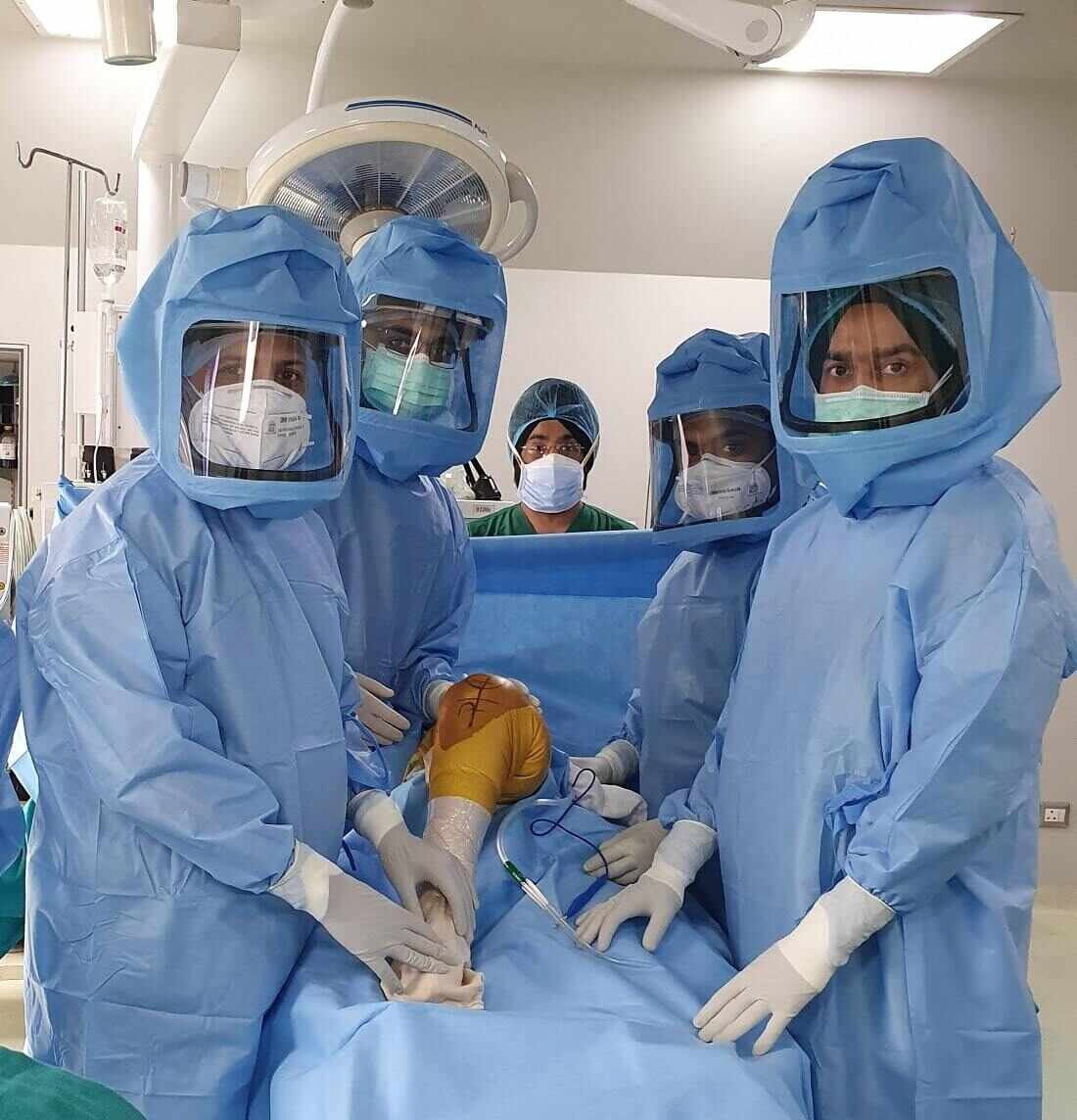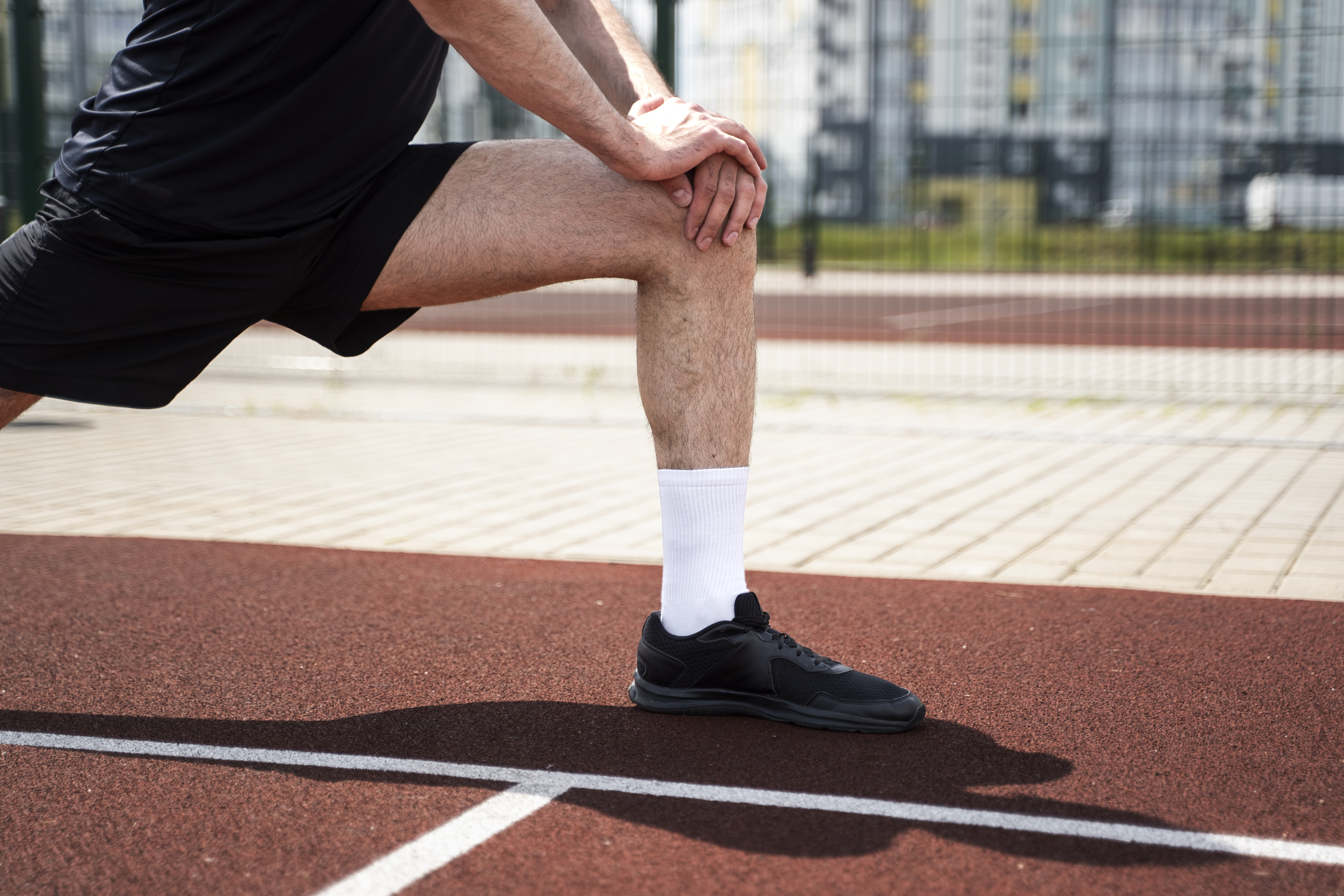


Total Knee Replacement is very rewarding surgery for advance arthritis of knee joint. Osteoarthritis of the knee joint is a progressive degenerative disease due to the aging process leading to pain, difficulty in walking & deformities. Knee can also get damaged due to other problems such as Rheumatoid Arthritis, Post Traumatic Arthritis, or any infection causing damage to the cartilage of the Knee joint. In the initial stages of arthritis medicines, physiotherapy can help but in advanced stages of arthritis, only knee replacement can work.
Total Knee Replacement is required for cases with advanced arthritis of the Knee Joint. The most common cause is Osteoarthritis of the knee joint which is worn & tears happening in the Knee joint due to the aging process. Other indication includes Rheumatoid Arthritis or Arthritis due to damage to the Knee Joint following infection or Trauma.
Total Knee Replacement involves replacing the damaged cartilage at the end of bones with Artificial Knee components. The collateral ligaments are preserved as they are needed for the stability of the Knee Joint.

If the patient is having problems in both his knees and is medically fit after being examined by the physician & anesthetist, then both knees can be replaced together.
Nowadays Total knee Replacements( TKR ) are performed with MIS ( Minimally Invasive Technique) with the latest implants. This leads to post-operative surgical pain & very quick recovery. The patient is made to walk from next day onwards with the help of a walker. By the time patient is discharged ( usually 3-5 days) he can ambulate on his own with the help of a walker. Gradually with exercises patient progresses to walking with a cane and then without any support in 3-6 weeks.
Usually, by 2 months a Knee Replacement patient can start doing household chores like cooking, can go for gentle walks, and driving. The person can lead an almost normal life for 4-5 months. There are usually some restrictions after Knee replacements such as sitting cross-legged or squatting on the floor. Patients are allowed sports like swimming, cycling, or playing golf but should avoid physical sports like Football, Basketball.